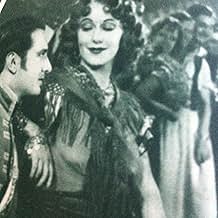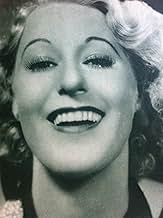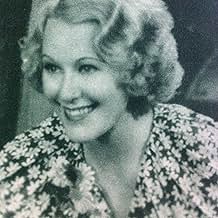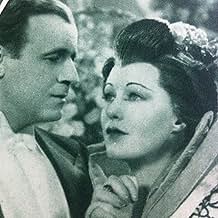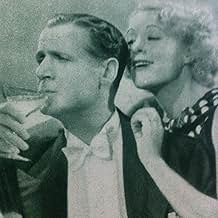Mary, an aspiring opera singer, trains under famed maestro Guilio Monterverdi. Their professional relationship turns romantic amid hard work and clashes, but jealousy and misunderstandings h... Read allMary, an aspiring opera singer, trains under famed maestro Guilio Monterverdi. Their professional relationship turns romantic amid hard work and clashes, but jealousy and misunderstandings hinder their love's expression.Mary, an aspiring opera singer, trains under famed maestro Guilio Monterverdi. Their professional relationship turns romantic amid hard work and clashes, but jealousy and misunderstandings hinder their love's expression.
- Won 2 Oscars
- 3 wins & 4 nominations total
- Galuppi
- (as Andres De Segurola)
- Bartender
- (uncredited)
- Undetermined Role
- (uncredited)
- Children's Music Teacher
- (uncredited)
- Radio Judge
- (uncredited)
- Cafe Owner
- (uncredited)
- Minor Role
- (uncredited)
- Stage Manager
- (uncredited)
- Vegetable Man
- (uncredited)
- Undetermined Role
- (uncredited)
Storyline
Did you know
- TriviaThis was the first film to win an Academy Award for Best Music Score (for Louis Silvers) as 1934 was the first year that an Oscar for this category was introduced.
- Quotes
Mary Barrett: I have $500 of my own. I'm taking that money and I'm going to Italy to study!
Mr. Barrett - Mary's Father: Italy?
Mary Barrett: Yes!
Mrs. Barrett - Mary's Mother: Why, that place is full of Italians!
- ConnectionsFeatured in The Soundman (1950)
- SoundtracksOne Night of Love
(1934) (uncredited)
Music by Victor Schertzinger
Lyrics by Gus Kahn
Sung by Grace Moore at a radio contest
Partially sung a cappella by Tullio Carminati twice
Played often in the score
At the time, Grace Moore got all the attention, as much for her shapely figure and for stepping down from her Metropolitan Opera pedestal as for her actual performance. Playing a soprano who spends her savings to study with a famous maestro in Italy, the 33 year-old Moore seems a bit of a late starter, but bounces around with lots of vivacity. Singing the title song and the inevitable "Ciri-Biri-Bin", she mostly avoids the pearls-before-swine tone of opera singers when they stoop to popular song, although she still sashays [especially as Carmen] and waves her arms too much for modern tastes.
Many decades later, it is clear that much of the charm was supplied by Tullio Carminati, an appealing comic actor with a wry quality, something like an Italian Walter Matthau. As Moore's mentor/romantic interest, he has a kind of offhand sophistication and the expert timing to support Moore's occasionally shaky line readings [of course, she's the one who got the Oscar nomination].
Director Victor Schertzinger soft-pedals the high culture, and manages several Lubitsch/Mamoulian moments: one amusing conceit has a building full of musicians all practicing different instruments in discord, until Moore unites the tunes with her impromptu rendition of "Sempre Libre" from LA TRAVIATA. Another enjoyable sequence presents singing a quartet from LUCIA as a strategy to avoid paying the rent. When the plot enters the tiresome misunderstandings phase, Schertzinger keeps the pace going until the finale, a staging of a scene from MADAME BUTTERFLY.
Throughout, Joseph Walker, Columbia's maestro of camerawork, softly lights Moore to utmost advantage, and even gets in a couple of zoom shots [in 1934!]
- How long is One Night of Love?Powered by Alexa
Details
- Runtime1 hour 24 minutes
- Color
- Aspect ratio
- 1.37 : 1
Contribute to this page


